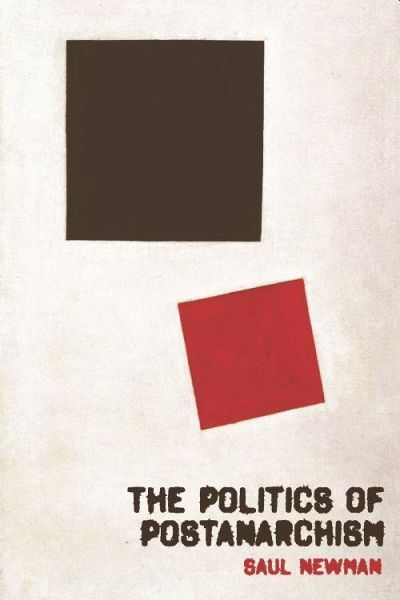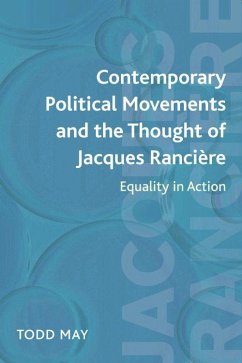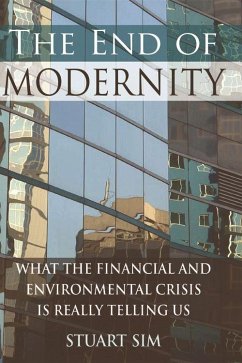
The Politics of Postanarchism
Versandkostenfrei!
Versandfertig in über 4 Wochen
122,99 €
inkl. MwSt.
Weitere Ausgaben:

PAYBACK Punkte
61 °P sammeln!
Saul Newman contends that anarchism's anti-authoritarian egalitarianism informs the ethical and political terrain of contemporary radical struggles, particularly the global movement of anticapitalism. Yet he also argues that anarchism relies on an outdated epistemology and calls for a new direction in anti-authoritarian and emancipatory politics. Newman frames a revitalized approach to politics he calls postanarchism. Drawing on classical anarchist, poststructuralist, post-Marxist, critical, and psychoanalytic approaches, this innovative method newly engages with radical politics and its relation to subjectivity, identity, globalization, equality, and the state.
'Saul Newman is one of the pioneers in redeeming the promise of anarchist thought with the resources of contemporary continental philosophy. In this work, at once philosophical and political, Newman engages such thinkers as Foucault, Badiou and Rancière alongside classical and contemporary anarchist thought as well as struggles such as the anti-globalization movement. The Politics of Postanarchism offers a compelling framework for progressive political thought and intervention.' Todd May, Class of 1941 Professor of the Humanities, Clemson University 'In this book, Saul Newman announces postanarchism as a lively, vital and highly pertinent perspective for our times. With a brilliant grasp of the anarchist tradition, of continental theory and the political challenges of the contemporary world, Newman unpacks the meaning and relevance of postanarchism to readers at all levels of experience. That he manages to do so in a readable and confident style, pays testimony to his own growing reputation as a highly original thinker with a great deal to offer us in terms of showing the link between political theory and political practice. Highly recommended.' Simon Tormey, Professor and Head of School, Social and Political Sciences, University of Sydney What is the relevance of anarchism for politics and political theory today? While many have in the past dismissed anarchism, the author contends that anarchism's heretical critique of authority, and its insistence on full equality and liberty, places it at the forefront of the radical political imagination today. With the unprecedented expansion of state power in the name of security, the current 'crisis of capitalism', and the terminal decline of Marxist and social democratic projects, it is time to reconsider anarchism as a form of politics. This book seeks to renew anarchist thought through the concept of postanarchism. Saul Newman is Reader in Political Theory at Goldsmiths, University of London. He is author of













